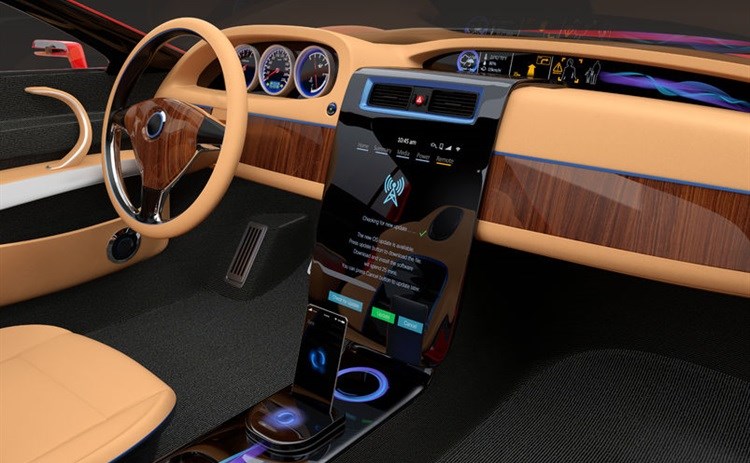
Related
Top stories






AutomotiveHilux Custom Builds offers purpose-built solutions for your business
Toyota South Africa Motors 16 Feb 2026
More news

Marketing & Media
Ads are coming to AI. Does that really have to be such a bad thing?















2017 is likely to be another interesting year for the automotive sector – as manufacturers, dealers and service stations continue to incorporate new digital innovations into their businesses.
While there may not be any ground-breaking events – like the launch of flying cars, or vehicles powered by solar energy – 2017 will see a gradual maturing of automotive technology. We’ll see new tie-ups between automotive players and IT providers, vehicle tracking businesses, short-term insurers, and fleet management firms.
Let’s look at five of the biggest technology trends driving transformation in the automotive sector:
The first big trend affecting the automotive sector, along with all other industries, is the increasing role that business leaders will play in the IT spend space with technology sourcing and partners. From sales, to finance, to marketing, and production departments, the various lines of business will continue to drive the IT spend with or without the IT department.
We should see traditional IT work, like network and desktop support, increasingly be handed over to outsourcers, dramatically simplified, or even entirely automated. This will be as a result of companies looking to drive down costs across the business.
These trends place pressure on the IT department, which now has to fight for its place at the decision-making table. But this is actually a positive dynamic. We’ll see an entirely new crop of IT professionals, with the business-savvy and strategic minds to add true value to their business partners.
The Internet of Things (IoT) will continue its rapid ascent into the technology mainstream in 2017. Those in the automotive and manufacturing sectors will use IoT innovations to digitilise and automate supply chains and interactions with partners. This will realise greater insight for customers, drive down costs, as well as improve efficiencies in their operations.
In the cars themselves, embedded technology will become more feature-rich, providing detailed diagnostics to both drivers and manufacturers. We should see more OEMs launch true connected car offerings into the local market, as well as other role players. This data will inform the optimal service cycles of the vehicles, 'pay how you drive', roadside assistance enhancements, location-based services and help manufacturers to better understand driver behaviour.
As the vehicles become more connected in this way, we will start to see seismic shifts in the value added in the automotive industry space, with re-alignment along the lines of the short-term insurance industry and vehicle tracking markets.
Our research indicates the surprisingly worrying trend that South African organisations are among some of the most targeted when it comes to advanced cyber-attacks. In 2017, any complacency that we may have will be severely punished.
This escalating threat landscape can be seen alongside the introduction of the Protection of Personal Information (POPI) Act, where the Ombudsman will be looking to ‘make an example’ out of organisations that violates POPI, to ensure that other companies tighten their privacy and information security policies. With these two trends combined, next year will be an interesting one for cyber-security – for automotive firms as well as those in other sectors.
Through movements like the ‘Right to Repair’ campaign, franchise dealers will find it increasingly difficult to hold onto their workshop and service businesses. If campaigns like these succeed, it seems likely that smaller, independent workshops will be entitled to a car’s service scheduling and possibly history, and be allowed to work on a customer’s vehicle without voiding the warranty.
Holding onto these workshop customers will mean smartly applying technology to personalise the service to customers, and pre-empt maintenance issues before they arise. New mobile and digital services that enable dealerships to stay in closer contact with their customers, throughout the entire lifecycle of the vehicle, will be the ones that retain the service work. It will come down to the customer experience, and derived value that the retail customer will experience.
As more of the corporate IT estate is migrated to the cloud, 2017 will see companies moving towards thin client desktops and laptops, reducing spend in the hardware space, and giving staff greater mobility.
For automotive dealers, this is an exciting trend. Showroom and service staff will be empowered with roaming devices from which they will be able to access every aspect of the dealer’s operations. 2017 should see us all realise that not all customers have the time to come to the dealership, and we need to deliver the brand experience to them across multiple channels in multiple locations.
With increased mobility, dealerships can also extend the customer experiences beyond their opening hours and their physical location. Customers can engage with apps and beacon technology to download information, and find out more about vehicles and offers whenever they want. The concept of a ‘virtual showroom’ – open 24 hours a day, from wherever the customer may be – will gain in popularity.
I would like to wish all our customers and partners a successful 2017!
